How to Recover Deleted Files from Laptop/PC on Windows 10/8/7
If you've accidentally deleted a file, you can recover it from the Recycle Bin. If it's not there, you can use data recovery software to easily recover permanently deleted files from your laptop or PC.
PAGE CONTENT:
- Recover Deleted Files from the Recycle Bin
- Retrieve Deleted Files with Software (Recommended)
- Restore Deleted Files Without Software
- Recover Deleted Files from Windows Backup
Deleting files accidentally is a common mistake that can happen to anyone. If you've unintentionally deleted a file but need it later, there's hope for recovery. You can follow the tips in this guide to recover deleted files from your laptop or PC on Windows 10/8/7.
How to Recover Deleted Files from Recycle Bin on Windows 10
If you deleted files on your computer by moving them to the Recycle Bin without emptying it, you can easily recover recently deleted files. To do this, follow these steps on Windows 10:
Step 1. Open the Recycle Bin, locate and right-click the files you want to recover and select "Restore".
Step 2. This will retrieve deleted files back to their original location. After restoration, you can copy the files to other drives if you want to.
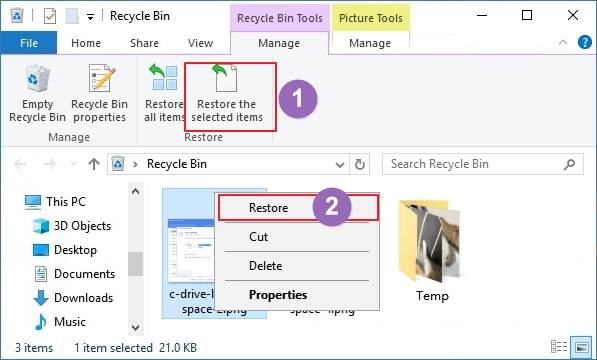
How to Recover Deleted Files with Deleted File Recovery Software
If the removed files aren't in the Recycle Bin and there are no previously saved versions, you can use a data recovery software like Deep Data Recovery Wizard to recover deleted files or restore permanently deleted files on a PC or laptop.
Deep data recovery software is a user-friendly tool with a decade-long flawless track record in the data recovery field, developed with advanced algorithm technology.
Your Safe Deep Data Recovery Software
- This software supports various data recovery modes, including permanently deleted files recovery, formatted recovery, RAW recovery, and more, to help restore lost data.
- You can recover deleted files from various storage devices, including SD cards, USB flash drives, HDDs, SSDs, external hard drives, and more, using specialized software or tools.
- Recover lost files with ease, including Word documents, Excel spreadsheets, photos, videos, audios, emails, and hundreds of other file types.
Download Qiling deleted data recovery software for free and follow an intuitive process to restore deleted files from your laptop or PC on Windows 10.
Step 1. Download and Install for Deep Data Recovery Software
Download the software installation package, install it on your computer, and run it. Then, click the "Next" button.
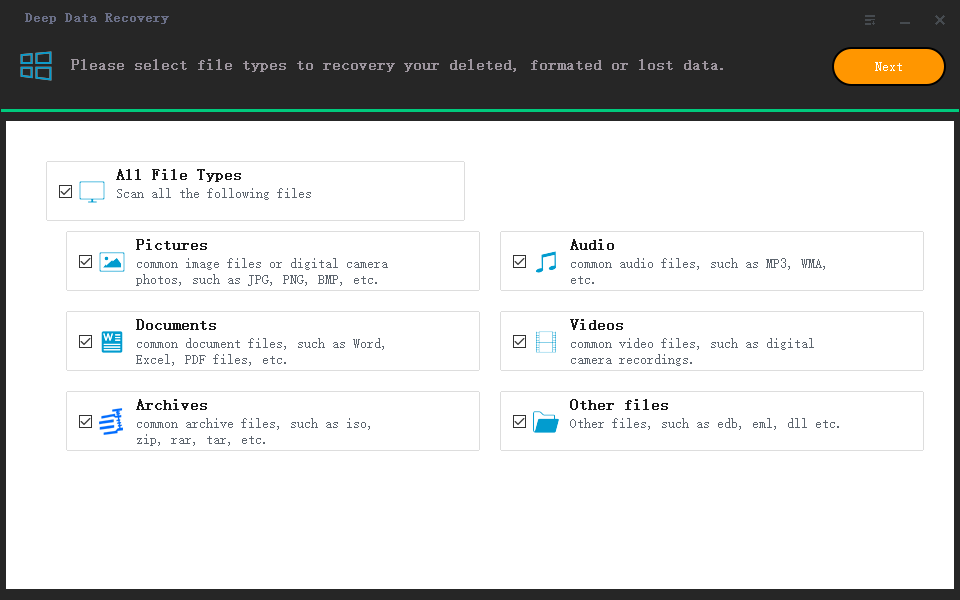
Step 2. Choose the exact file location and then click the "Scan" button to continue.
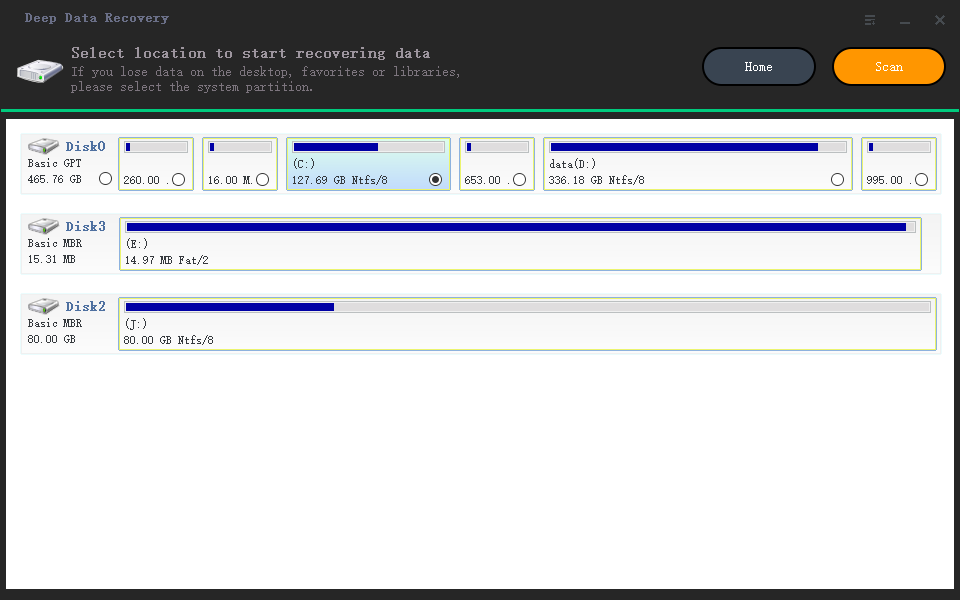
Step 3. Preview and Recover deleted files
The found files are listed in the result window. Select the files to recover and click "Recover" to save them to your computer. If needed files are not found, try the "deep scan" for a more thorough search. This may reveal additional lost files.
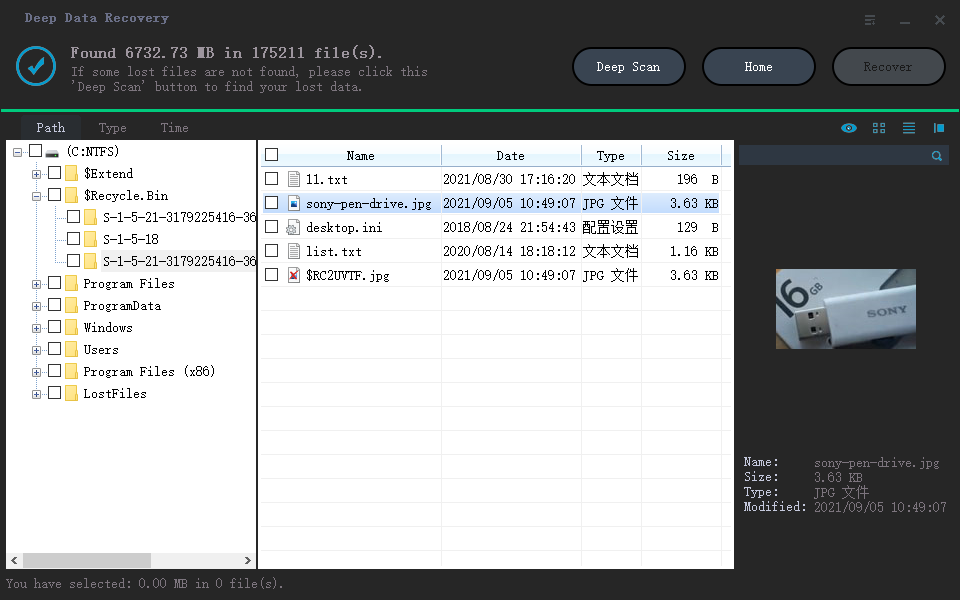
Caution:
To avoid data loss, I recommend backing up important data from the driver to your computer regularly. This way, you'll be prepared in case any issues arise, such as data loss from the hard disk. If you do experience data loss, stop using the hard disk immediately to prevent further loss and consider using a file recovery tool.
Don't save recovered data back to the original partition or drive to avoid overwriting the file. You can transfer it there later.
If you only need to recover a few small files, you can use the free version of Deep Data Recovery Wizard or Qiling free data recovery software, which allows you to recover up to 2GB of data, and can be used to recover any type of file on the hard drive of a laptop or PC.
Restore Deleted Files Using the Previous Versions Feature (Without Software)
If you've deleted a file and it's not in the Recycle Bin, or you've emptied the Recycle Bin, you can try to recover an older version of the file using Windows' built-in backup and restore feature. To do this, follow the steps outlined in the provided text.
In Windows 10/8.1/8:
Step 1. Open Control Panel.
Step 2. Go to "File History" > "Restore personal files".
Step 3. Click the green "Restore" button to get the deleted files back.
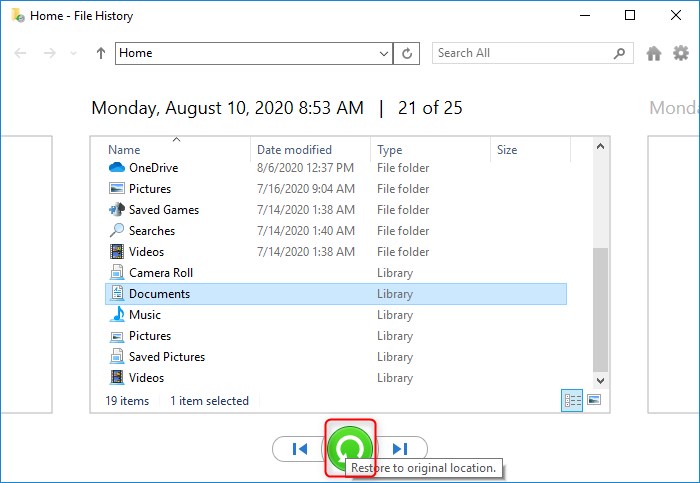
In Windows 7:
Step 1. To recover a deleted file or folder, start by clicking the "Start" button, then select "Computer" from the menu. Navigate to the folder that used to contain the file or folder you need to recover, and you'll be able to access it again.
Step 2. Right-click the folder and select "Restore previous versions" in the context menu.
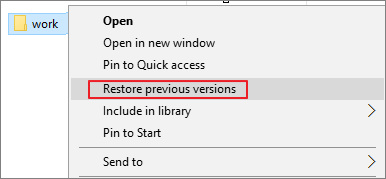
Step 3. To restore deleted files, select the desired version from the list of available previous versions, and then click "Restore" to retrieve the deleted files.
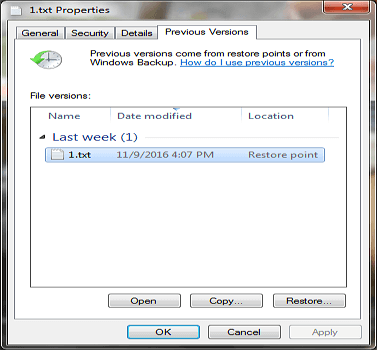
Microsoft's guide on how to recover deleted files from previous versions is available on their web page.
How to Retrieve Files from a Backup on Windows 10/8.1/8/7
To restore deleted files using Windows Backup, start by ensuring the media or drive containing the backup is available. Then, go to Control Panel, select System and Security, and click on Backup and Restore. From there, click on Restore your files with File History or Restore your computer with Windows Backup, depending on your needs.
Step 1. Click the "Start" button, type Control Panel and select it.
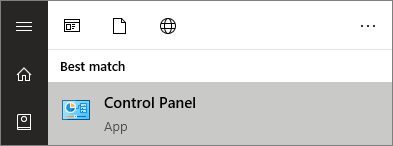
Step 2. Select "Backup and Restore (Windows 7)".
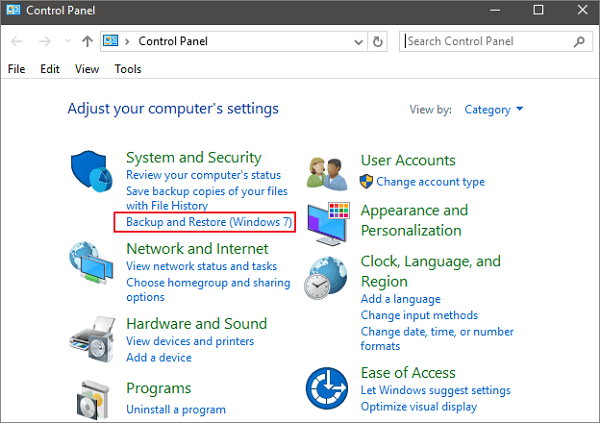
Step 3. Click the "Select another backup to restore files from" option and choose your backup.
Step 4. Click "Next" and follow the instructions to complete the recovery process.
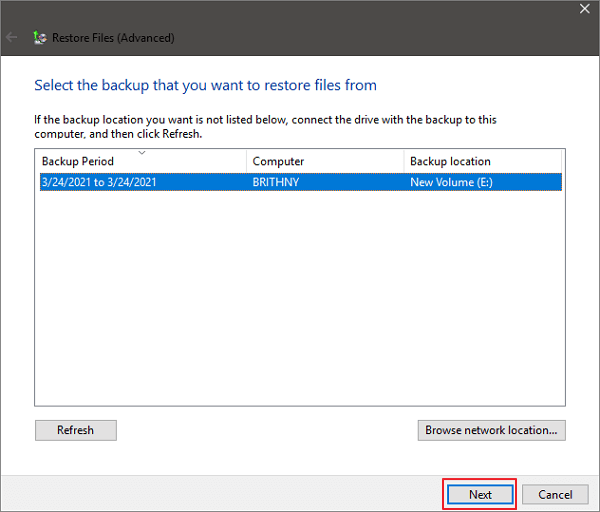
FAQs You Need to Check Out to Recover Deleted Files
If you have any of the following frequently asked questions about deleted file recovery, you'll find answers here.
1. Where do deleted files go?
Items deleted in a regular way should end up in the Recycle Bin, giving a second chance of recovery if needed. However, using the "Shift" + "Delete" key combination or malware can permanently delete items, bypassing the Recycle Bin.
When you delete a file, it's not completely erased from your computer. The operating system labels the disk space as available, but the file itself is still stored somewhere on the computer. This means that deleted files can potentially be recovered if you have the right tools and knowledge.
2. How to recover deleted files from an external hard drive, SD card, or USB drive?
If you remove files from an external hard drive, a removable USB flash drive, or an SD card, the deleted files won't go to the Recycle Bin. To recover them, you need to connect the external storage device to your computer and make it show up. Then, you can apply Deep data recovery software to recover the deleted files using the following simple steps.
Step 1. Connect your external hard drive, USB, or SD card to a laptop or PC.
Step 2. Make sure the device appears.
Step 3. Open Deep data recovery software and use it to retrieve removed files from the external disk.

Deleted File Recovery Conclusion
After reading this tutorial, we believe that you have learned effective methods to recover deleted files on a PC running Windows 10/8/7. When you lose files, take a moment to look around for them before giving up, and then you can apply the methods you've learned to try to recover them.
- You can restore files that have not been permanently deleted from the Recycle Bin.
- If the first method doesn't work, use Deep data recovery software to scan your hard drive and recover permanently deleted files on Windows 10.
- To recover lost files, check your backups, such as File History or external drives, and restore the files from there. It's much simpler to back up files beforehand than to try and recover them after they're lost. You can enable File History or use automatic file backup software to protect your files and prevent future losses.
Related Articles
- Fix 'Photos Cannot Preview or Open' Error in Windows 10/8/7
- Run Deep Data Recovery from WinPE Bootable Disk
- Best Online Data Recovery Tool for File Recovery [in 2022]
- Free Download Deep Data Recovery Torrent, Serial Key